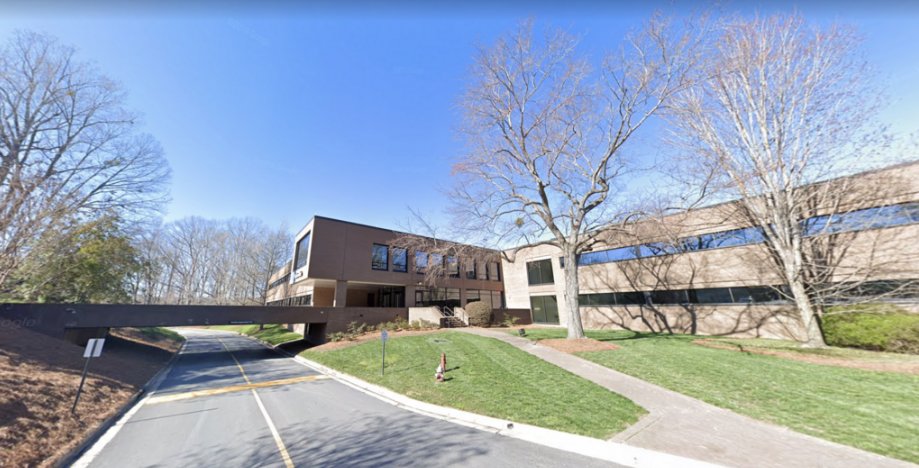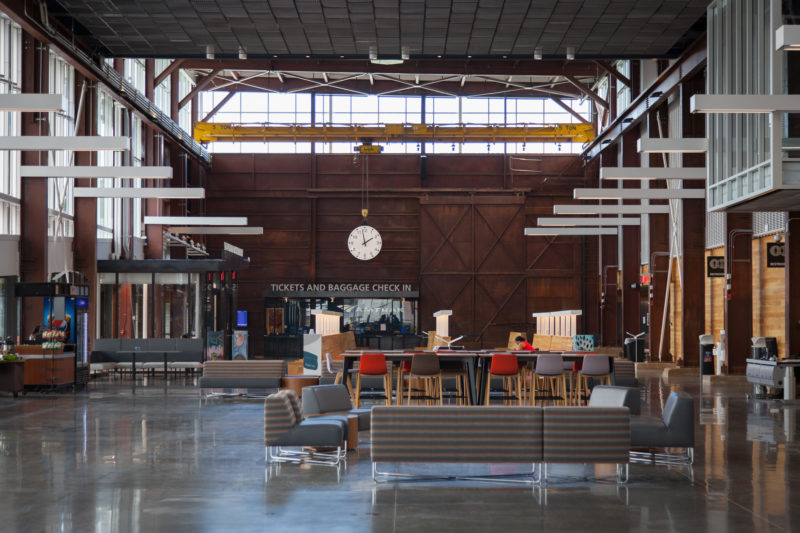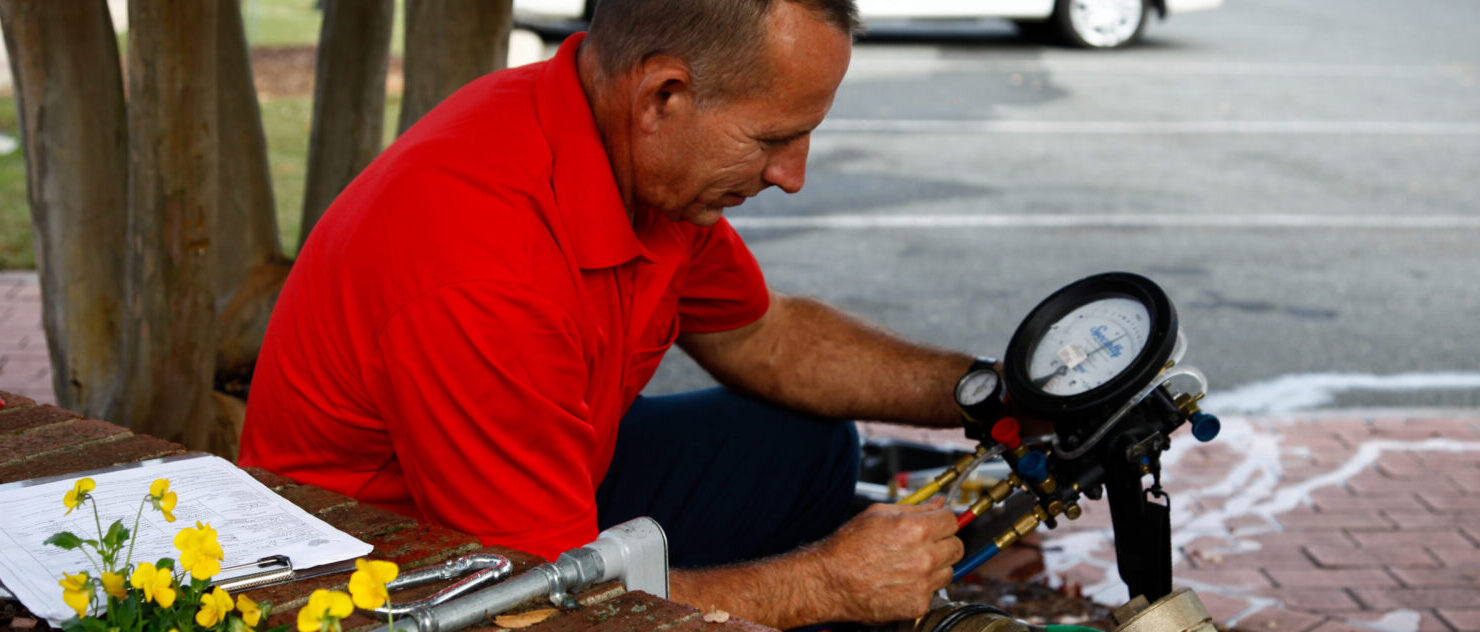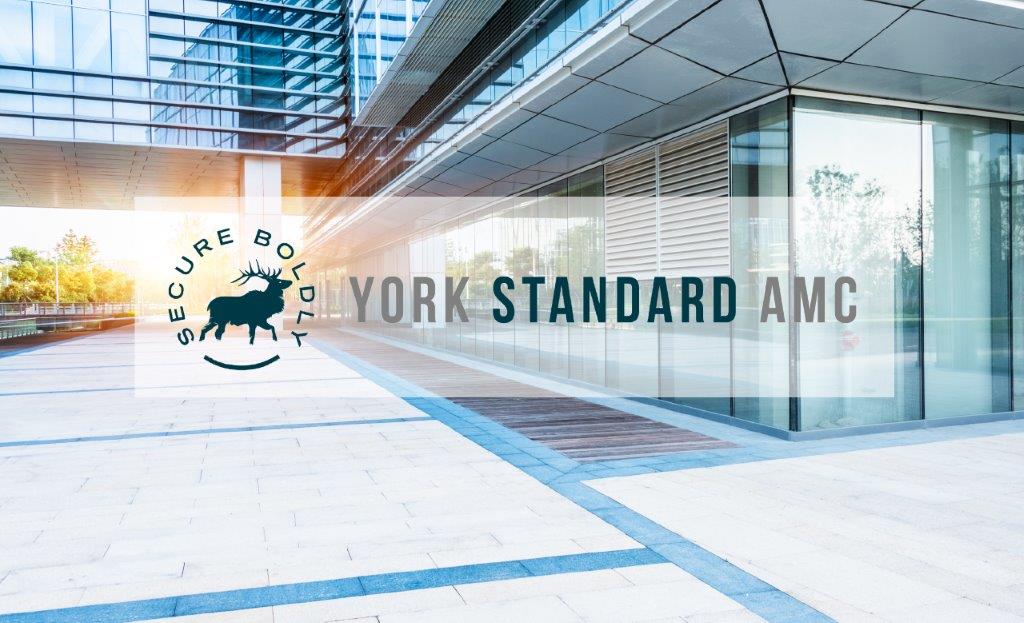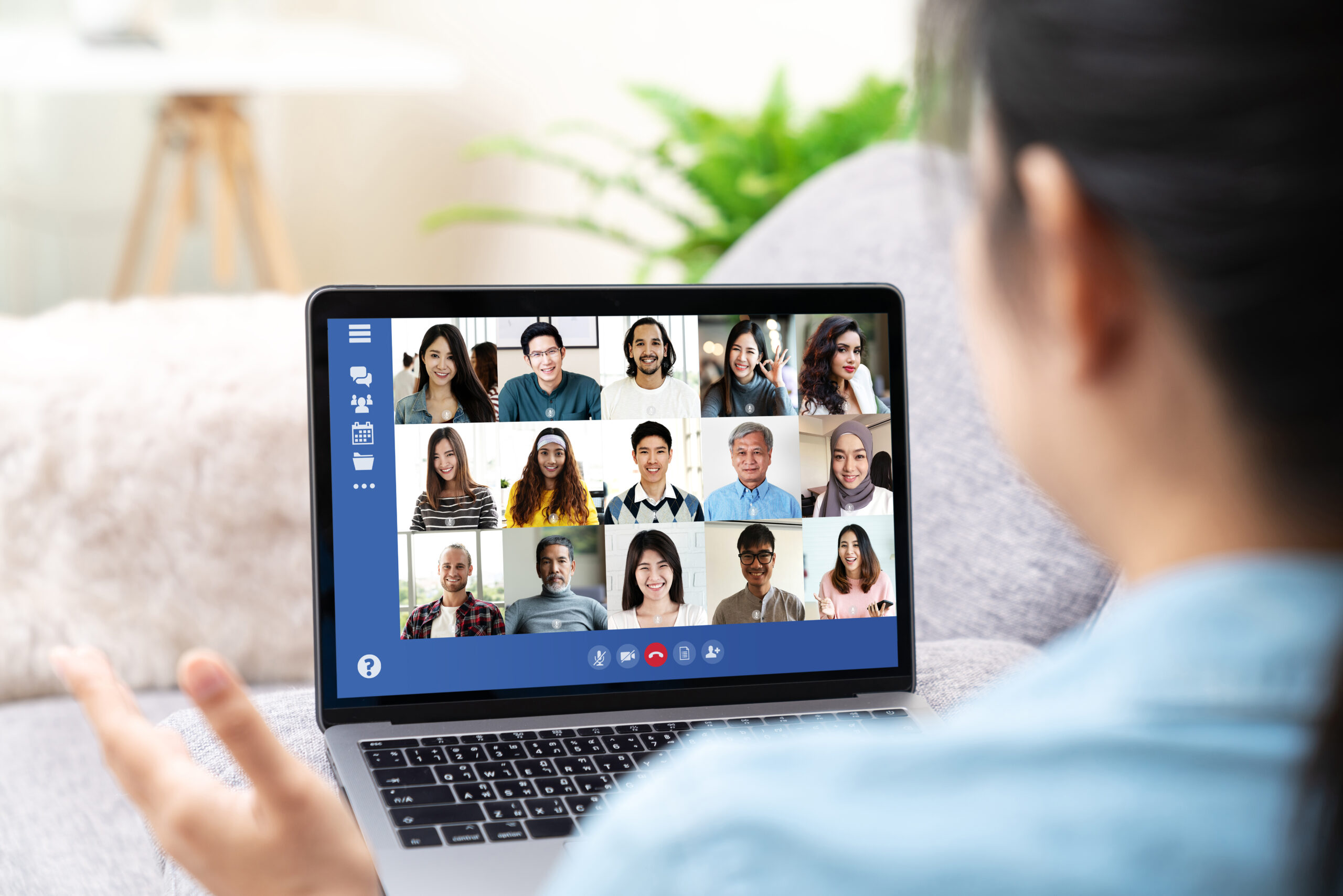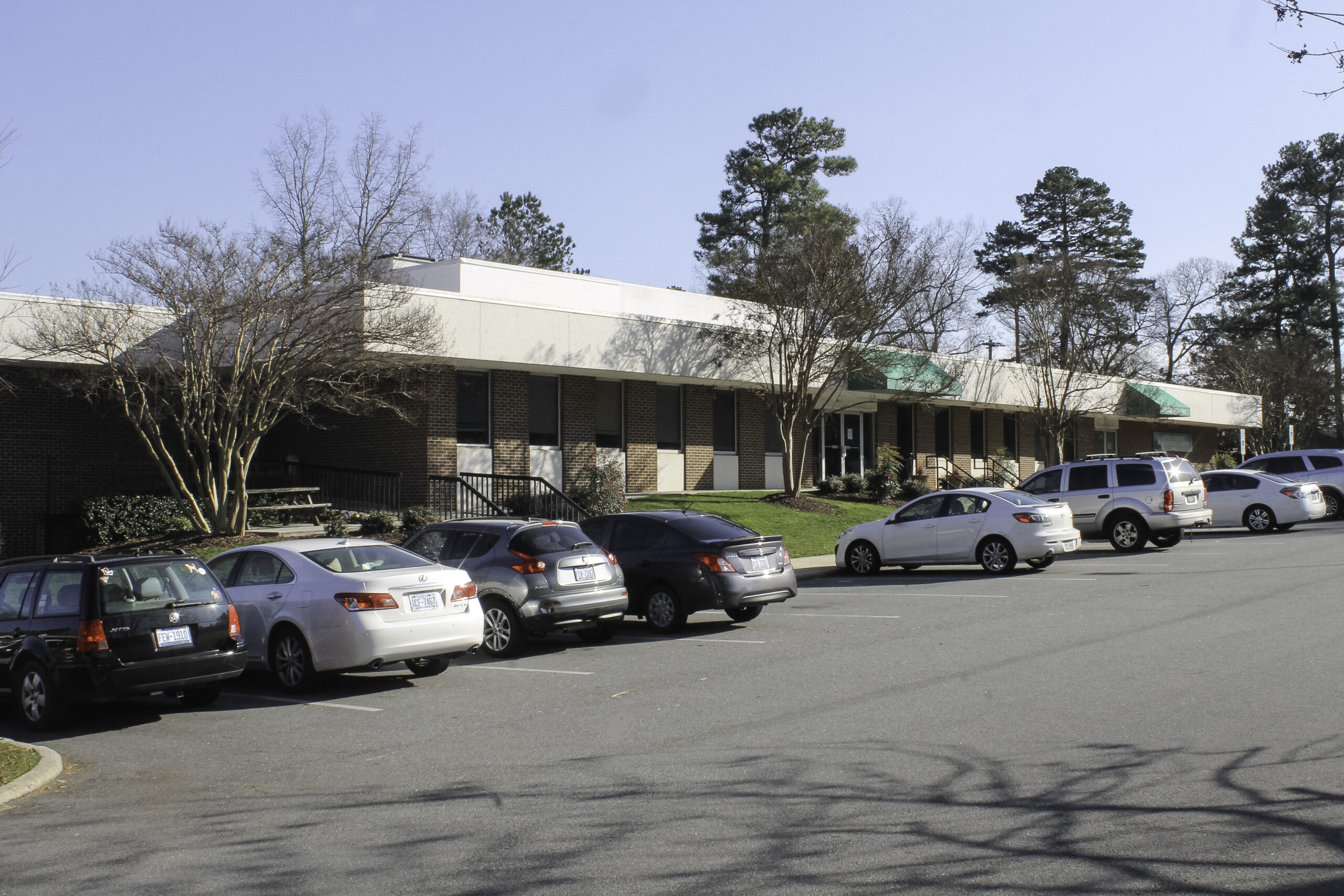
Bloomsbury Landscapes is Under New Management
Our Latest Brokerage Assignment
York Properties is pleased to announce that it has been selected to provide landlord representation services for North Carolina State University. York is the exclusive leasing agent for more than 460,000 SF of office space on Centennial Campus and retail space on Hillsborough Street.
Centennial Campus offers much more than just office space; it also provides unique opportunities to partner with some of the brightest minds from industry, government and the academy. The broker team working with NC State’s Real Estate and Development office includes John Koonce, Skipper Day, Robert Hoyt, Malcom Lewis and Julie Paul.
State Employees Credit Union purchases office complex for $22MM
York Properties brokers John Kerr and Skipper Day represented the State Employees Credit Union in their recent purchase of the former Nationwide Mutual Insurance Company office complex at 4401 Creedmoor Road.
The 161,000 SF complex – situated on 16.5 acres in the Crabtree Valley Mall area – sold for $22,000,000.
Events at Raleigh Union Station Persevere
The venue space at Raleigh Union Station (RUS) may not be able to hold large events due to Governor Cooper’s capacity restrictions to slow the spread of COVID, but that has not stopped our events team. RUS has been able to reschedule most of the 2020 events for 2021 and continues to book new events. The events scheduled for 2021 are mostly social (i.e. weddings) and we anticipate that social events will outnumber corporate events next year. Too many weddings have been postponed!
While they wait for a return of events, Karen Clymer, York Event Coordinator, in partnership with Richard Costello, City of Raleigh, have focused on strategic marketing efforts. The duo approached local production companies to pitch RUS as a cool backdrop for commercials. IBM was the first locally-produced spot and several others are scheduling. In addition, RUS produced their own venue photo shoot with photographer Richard Barlow and 20 local vendors. The images from the photoshoot will be seen in a full-page ad in Heart of NC Weddings Magazine, Walter Magazine and WRAL online. Karen and Richard also filmed a venue tour with Thomas Blake Films, who filmed York’s Christmas Car Karaoke video last year.
So don’t wait if you’re thinking about booking Union Station for an event next year!
Top 5 Fall Preventative Maintenance Tips for Your Home
Labor Day weekend is quickly approaching and with it comes thoughts of cooler weather (Yay!), football tailgates (Eh…maybe not so much this year), and your home’s Fall preventative maintenance checklist (Right?!?). Since we knew you’d be thinking about all this stuff soon enough, we thought we’d share York Maintenance Divisions’ top five Fall maintenance tips.
Yes, yes….we know there are actually eight tips listed here. We got excited and couldn’t help ourselves, and “Top Eight Fall Preventative Maintenance Tips” just doesn’t have the same ring to it. Thanks for humoring us.
- Check windows and doors for air leaks.
This is one of the easiest ways to save on winter energy bills and keep your house from getting cold. Make sure there are not cracks, leaks or air coming through the window sills or door frames.
- Clean your heating and air conditioning unit.
Having your air conditioner and heater units cleaned twice a year- spring and fall- will help your family stay healthier and expand the life of your units. A professional cleaning is inexpensive and takes a very short amount of time.
- Check your fireplace.
Many people still use wood burning or gas fireplaces in the winter. Do a visual inspection of your fireplace to make sure that it is in good working order. Give it a test run at some point in the fall, before it gets too cold, to make sure that it will be functioning in the winter.
- Clean gutters and downspouts.
Once most of the leaves have fallen, clean out gutters and downspouts. Clogged gutters during rainstorms can cause water to pool and damage your roof or siding.
- Protect your garden hoses and spigots.
To keep your garden hose from freezing and cracking, empty it completely and disconnect it from the spigot. Moving it inside is also a good idea to help prevent your hose from freezing and getting destroyed.
- Drain Sprinkler/Irrigation Systems.
Chances are you aren’t going to be using the sprinklers in winter. Water left in the system can freeze causing the pipes to crack and burst.
- Check your smoke detectors and carbon monoxide detectors.
Install new batteries every spring and fall.
- Inspect and Trim Tree Limbs.
Trim any tree limbs that are dangerously close to power lines or the roof of your house. Heavy snow and ice can build up and cause weak tree limbs to break and fall onto your house or vehicles causing damage.
Our Maintenance Team is on call and ready to help with residential or commercial maintenance projects. Call or email us to discuss your maintenance needs at 919.863.0826 or [email protected]. We would love to hear from you!
TBJ Showcases York Standard’s New Venture
As financial challenges continue to sweep across the region, a pair of Raleigh firms have launched a new venture to serve as a one-stopshop for all things related to distressed commercial real estate.
York Properties Inc. and Standard Title Company have announced the launch of York Standard Asset Management Company, a joint
venture providing services for the handling of distressed commercial real estate, from receivership and active management to brokerage and more.
CDC’S Top Considerations for Reopening Your Office
Create a COVID-19 Workplace Health and Safety Plan
A written policy provides workers a sense of comfort knowing that the business owner has assessed the physical structure to see if it’s ready for occupancy and provides guidance on who should return to work and how they should act once there.
The plan should address:
- Mechanical and life safety systems
- Any hazards that could have arisen with a prolonged shutdown such as mold growth, pests or stagnant water
- Ways to increase circulation of outdoor air and to increase total airflow supply to occupied spaces
- Water systems safety
- Hazard identification that could increase risks of COVID-19 transmission
- Communication plans for how to act in common areas and meeting rooms
- Seats, furniture and workstation placement and/or transparent shields installation that helps maintain social distancing
- Signage, tape marks or other visual cues to encourage distancing
- Replacement of high-touch communal items with pre-packaged, single-serving items
- Encouraging workers to take responsibility to stay home if sick or exposed to COVID-19
- Staggered shifts, start and break times to reduce number of employees in common areas
- Policies for visitors such as cloth face coverings and/or notification of visit
- Increased disinfection rotation for high-touch surfaces
For more information about these and other ideas, please visit the CDC’s Employer Information for Office Buildings website.
NC Legislation Provides COVID-19 Liability Protection for HOAs
We are monitoring the passage of HB 118 and would like to share the following information from Jordan Price Law Offices:
“Several of you know that our firm has been closely monitoring and lobbying legislation which would provide liability protection for HOAs against COVID-19 claims arising from the re-opening of swimming pools and other association common areas. We are pleased to report that on June 23rd the North Carolina General Assembly passed House Bill 118: “An Act to Provide Limited Immunity from Liability for Claims Based on Transmission of COVID-19”. The bill is currently on the Governor’s desk and we are hopeful the law will go into effect by the July 4th holiday – we will keep you posted.
Unlike some specific legislation that was directed specifically to HOA swimming pools, this law will apply to all businesses and nonprofits across North Carolina, including HOAs. After the effective date of the law, associations will not be liable as a result of ordinary negligence in any claim brought by someone who claims to have contracted COVID-19 while on HOA or condominium common areas.
While this law does give some reassurance for associations in light of the lack of available insurance coverage for claims related to pandemic, virus and disease, , associations should be aware that gross negligence, willful or wanton conduct or intentional wrongdoing is not protected under the new law. A reckless disregard for following local and state guidance on reopening swimming pools or other amenities may very well fall into that unprotected category, so it is important for associations to be diligent about compliance with all state and local Executive Orders and decrees. The law will require an association to “provide reasonable notice of actions taken to reduce the transmission of COVID-19 on the premises”, and once that notice is provided, the association will not be liable for the failure of individuals to follow the rules or guidance called for in the notice. This provision in the law makes the posting and publication of detailed rules and guidelines extremely important in the association’s liability protection. Please see our earlier advisements on the importance of posting notices and adopting new, specific and detailed pool rules for the 2020 season.
We have spoken to many boards in the last few weeks who made the fiduciarily responsible decision not to open swimming pools given the lack of insurance coverage. Should you wish to reconsider your decision to open the pool, and assuming North Carolina remains in a reopening phase which allows same, please be sure to confirm that your notices and new pool rules will allow you to take advantage of the protections in this new law. As always, we are available to answer any questions you may have.”
Community Association Practice Group
Jordan Price Law Offices
HOA Virtual Annual Meetings
Below, our friends at Jordan Price Law Office provide insights into holding HOA meetings virtually. For additional information or guidance from Jordan Price please see contact information at the bottom of the article.
“We are hearing from many of our clients that your focus is shifting to your annual meetings and how business can be conducted given the challenges of the continuing COVID-19 pandemic. Unfortunately, all sources seem to indicate that a group membership meeting any time this year will be unlikely, either because of continuing gathering limitations by state or local order, or simply because social distancing is too difficult to achieve in a setting that might accommodate live membership attendance. As we have previously shared, Governor Cooper has, by Executive Order, encouraged all nonprofit corporations in the state to hold annual meetings by remote means (which would include all owners associations). Specifically, the order provides that any annual meeting that is held by “remote communication” be held in such a way that members shall have the right to participate by remote communication, “including with respect to the conduct of the business of such members’ meeting.” Further, the order reaffirms the process of voting by mail ballot, which has existed under NC statute for years but was seldom used in the context of annual meetings.
We want to clarify that there are 2 components of a “virtual” annual meeting: (1) voting and (2) meeting with opportunity for member participation. Statutory laws in North Carolina have not yet evolved to authorize electronic or online voting without specific authority in the bylaws, and the vast majority of HOA bylaws do not contain those provisions. What this means is that your annual meeting official business—voting on open director seats, approval of minutes from the prior annual meeting, ratification of budgets, and any other matter on which a vote must be taken—is all conducted by mail ballot either before or after the virtual meeting, pursuant to Section 55A-7-08 of the NC General Statutes (the NC Nonprofit Corporation Act). The virtual meeting can be used to provide committee/financial/board reports and perhaps quell any unrest on any major issues before election voting is to take place. Alternatively, the ballots may be collected prior to the virtual meeting and announcement of election results provided at the meeting. We would be happy to discuss which option might best suit your HOA. In any event, there is no voting during the online meeting; all voting must be done by mail ballot pursuant to the statute.
Anticipating the need to address these virtual meetings, and recognizing that most associations do not have the budget for purchasing hosting software for what may be a one-off meeting, our Firm has procured software that allows interactive hosting of virtual annual meetings. Several attorneys in the firm are trained to operate the software and host your meeting as a “virtual Parliamentarian.” We have run through over a dozen of these with different HOA boards at this point, and the results have been very positive. Some frequently asked questions on voting and how the virtual meeting would operate using this software are answered below:
- No proxies are sent because all members vote by mail ballot
- Quorum is established based on number of ballots received by a deadline date
- Written meeting notice is sent with a web address for members to register individually for the virtual meeting
- Board members, community manager and/or committee members can be set up as presenters to present financials and committee reports to the membership;
- All members are muted and only the meeting host can unmute, eliminating the potential for unruly “zoom” type meetings
- Boards can make the decision to limit questions to written format or for members to be recognized by the host to verbally address the meeting (most boards are choosing written questions)
- Private chat function between presenters protects attorney-client privilege between legal counsel and board members during the meeting
We know many of you already have a backlog and will have questions about this process and how to get started. Our own Matt Waters will address many of your questions next Friday, June 26th, as a presenter for a CAI Virtual Annual Meeting Webinar – follow the link to register or learn more.
As always, please let us know if you have further questions or would like to schedule your annual meeting or other virtual meeting open to your membership. Because only one meeting can be hosted in a particular time slot, early reservation of your date and time is recommended.”
Community Association Practice Group
Jordan Price Law Offices
919-828-2501 (Main) | 919-831-4484 (Fax) | www.jordanprice.com



